Kumara Sambhavam of Kalidasa (कालिदासकृत कुमारसंभवम्)
₹212.00
| Author | N.P. Unni |
| Publisher | New Bharatiya Book Corporation |
| Language | Sanskrit Text With English Translation |
| Edition | 2nd edition, 2023 |
| ISBN | 978-81-8315-228-0 |
| Pages | 130 |
| Cover | Paper Back |
| Size | 14 x 2 x 22 (l x w x h) |
| Weight | |
| Item Code | NBBC0074 |
| Other | Dispatched in 1-3 days |
10 in stock (can be backordered)
CompareDescription
कालिदासकृत कुमारसंभवम् (Kumara Sambhavam of Kalidasa) The poem opens with a description of the Himalaya mountain, which is conceived as a divine person, in all the grandeur and loveliness of Nature. The Poet’s imagination is afire as he dwells on the description of this mountain “which is the source of inexhaustible treasures and whose beauty is not impaired by snow”; the mountain “which bears on its summits rich metallic ore, like untimely twilight, whose colour are distributed in patches of clouds and which supplies the decorative materials to the amorous celestial maidens”; the mountain where Vidyādhara damsels write amorous missives on birchleaves with fluid ore, where the bamboo groves whistle musically to the gusts of wind, where the ‘Oşadhi’ (an herb) serves at night as lamps unfed with oil for the lovesports of the foresters in their caves and where the sun opens the lotus-flowers in the lakes on its summits with upturned rays!
Himālaya had Menā as his spouse who had borne him a son, Maināka, and a daughter, Pārvatī. In course of time Pārvatī grew to maidenhood, and Kālidāsa has tried in eighteen stanzas to show how her matchless beauty of body and limb made her the Belle Ideal. The sage Nārada had predicted Pārvatī’s marriage with Śiva, the lord of the universe. But her father bided his time in making an approach to Śiva lest he should turn in down. In the meanwhile, Śiva had taken up his residence on one of the summits of the Himalaya and was engrossed in practising penances, Himalaya had permitted his daughter to wait upon and offer worship to this uncommon guest.
About this time the gods subjected to tortures by the demon Taraka, approached Brahmā, lauded him with a panegyric and asked for a leader of their armies who would kill Tāraka. Brahmā, however, pleaded his inability to intervene, for Taraka had been originally blessed by him and ‘it is highly improper to cut down even a poison-tree after having reared it oneself;” he informed them, however, that only a son born of Mahādeva and Pārvatī could successfully march against the demon. To this purpose Indra, the ruler of heaven, turned his mind and bethought himself of Kāma, the god of love, who at once presented himself before his master, . Welcomed by his master with more than formal consideration, Kāma enquires about the purpose of his summons, volunteers to help Indra in amorous adventure and, being carried away by the mounting wave of arrogance, brags: “By your favours, though flowers only are my missiles, I would, assisted only by Spring, disturb the self- restraint even of Hara, the wielder of the Pināka bow; what then are ordinary archers before me?” Indra, then unfolds his plan and asks Kāma to strive to get Śiva interested in the daughter of the mountain, who was then waiting upon the great Lord at her father’s behest.
Accompanied by Madhu (Spring) and Rati, his beloved, Kāma went to the Himalayan region; suddenly Spring set in fifteen stanzas of Natural description teeming with erotic fervour show how the god of love had a proper setting for his game. Although Mahādeva heard the enchanting music of the heavenly nymphs, he yet continued his meditation: the entire precincts of his hermitage were as silent and unruffled as if drawn in a picture! Kāma stole into the sanctuary which was shaded by overhanging branches of Nameru trees and saw Mahādeva, the great Yogin, lost in deep meditation, full of transcendental calm and serenity, and radiating the lusture of majesty that was forbidding.

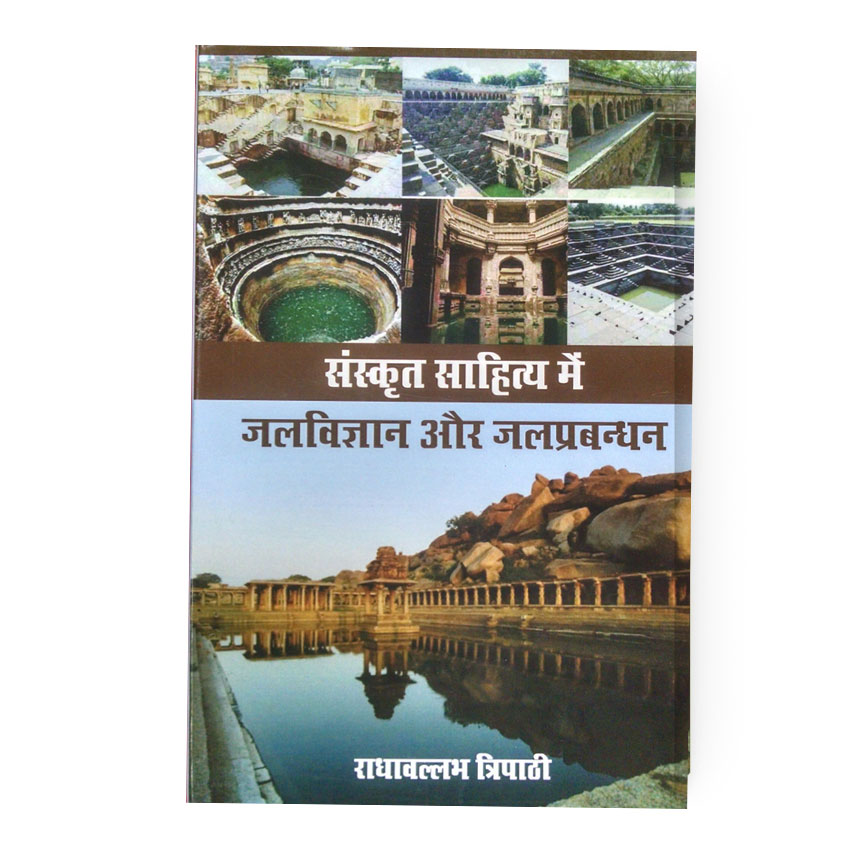
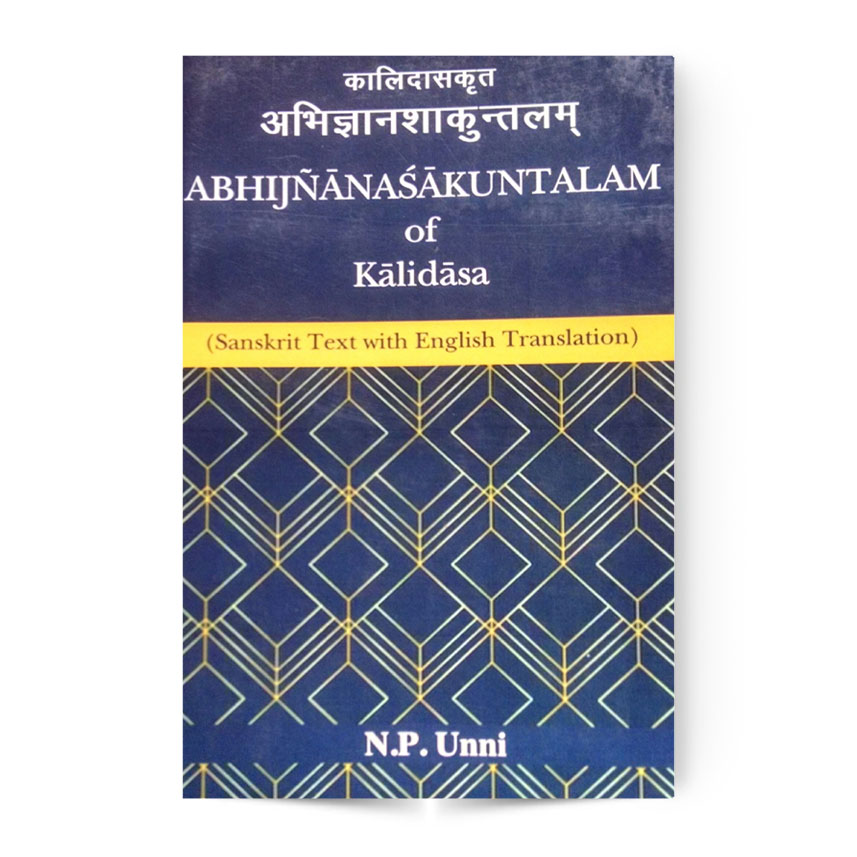
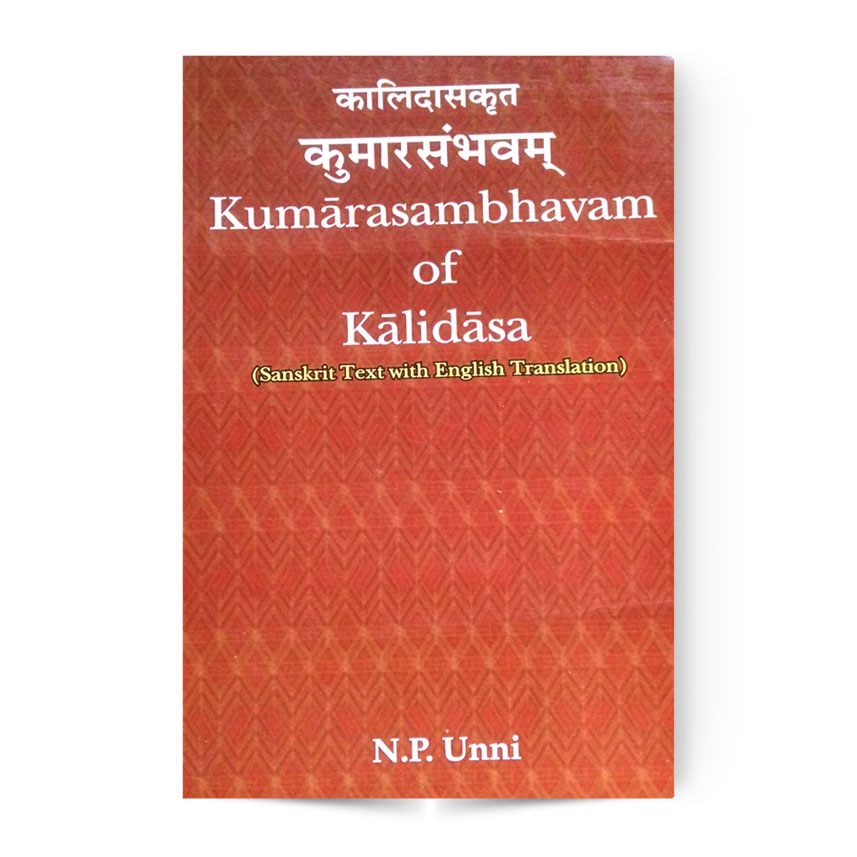
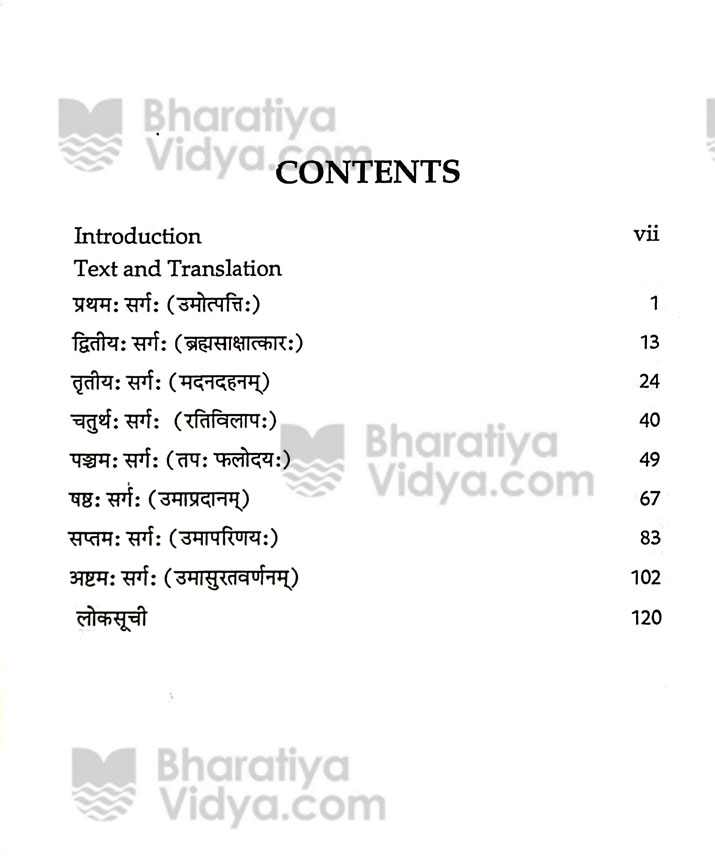
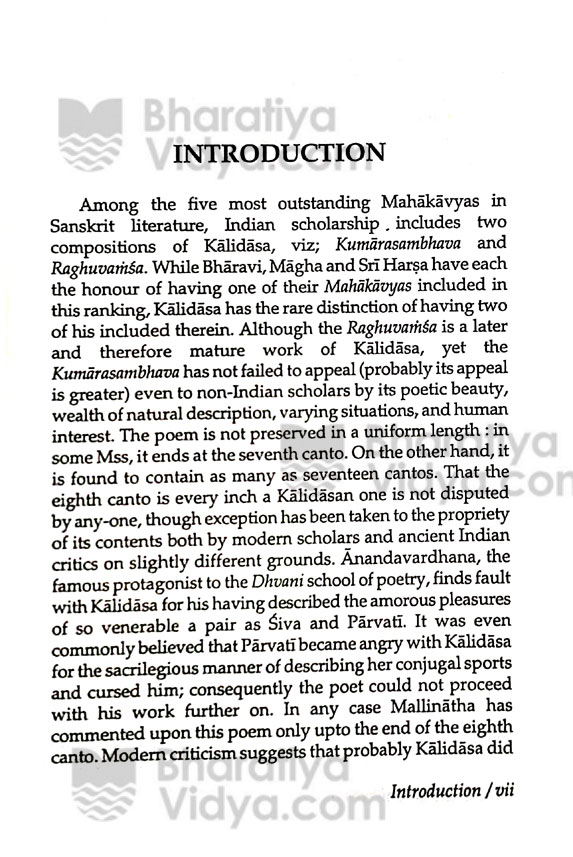
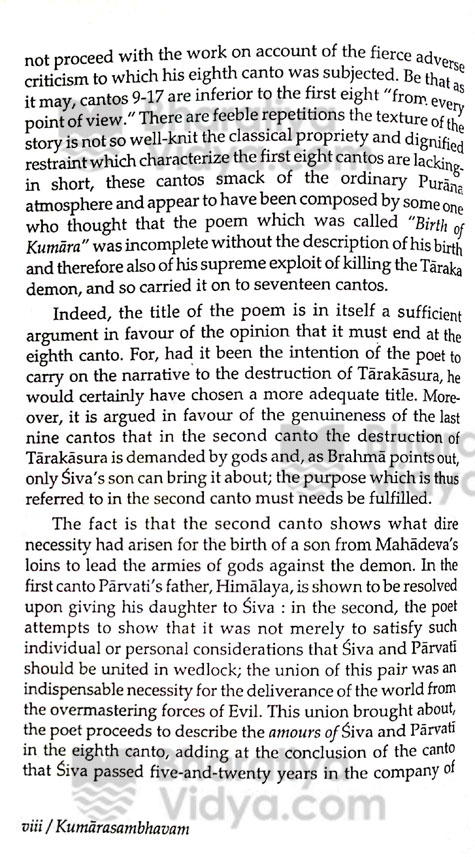
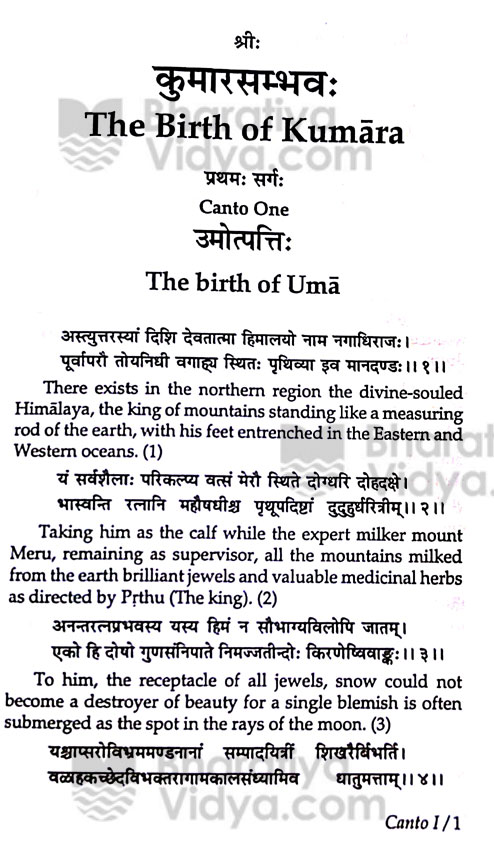
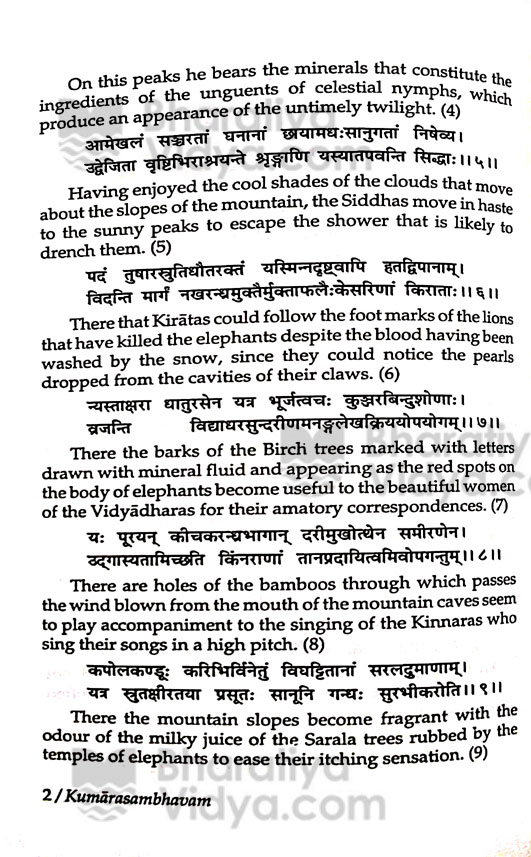
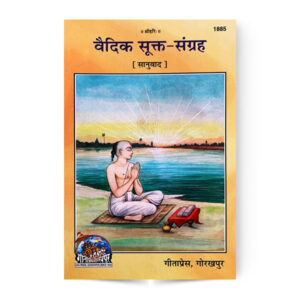
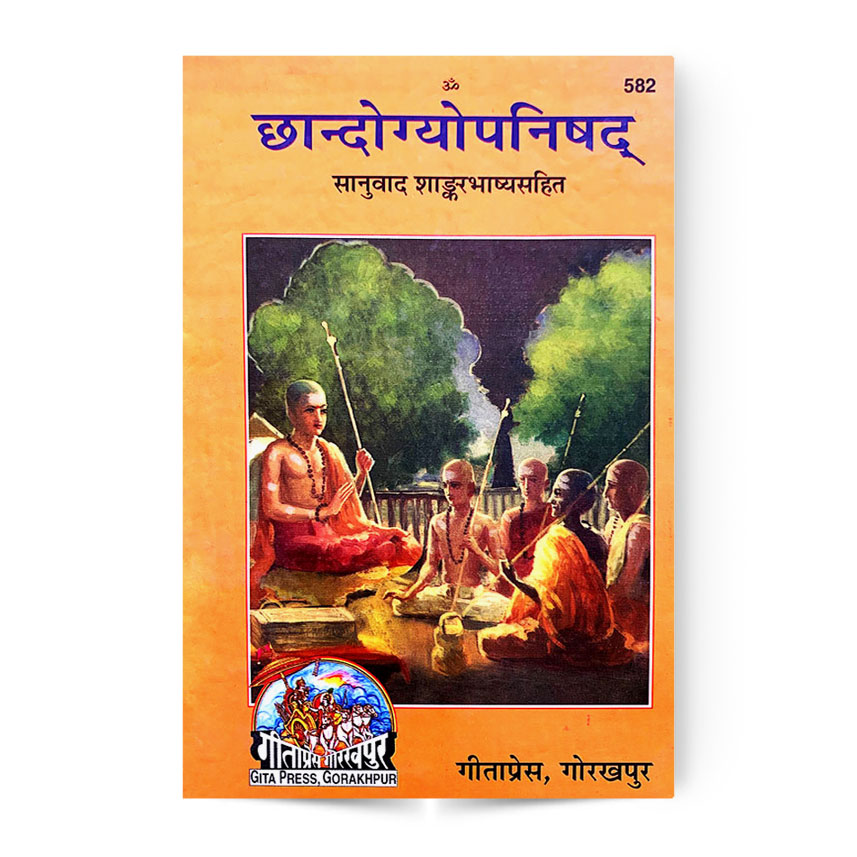
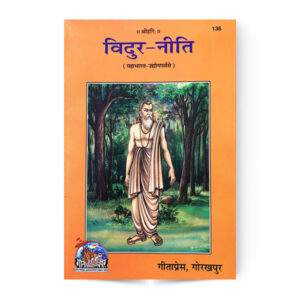
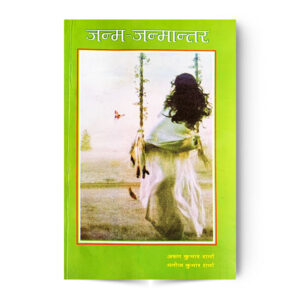
Reviews
There are no reviews yet.